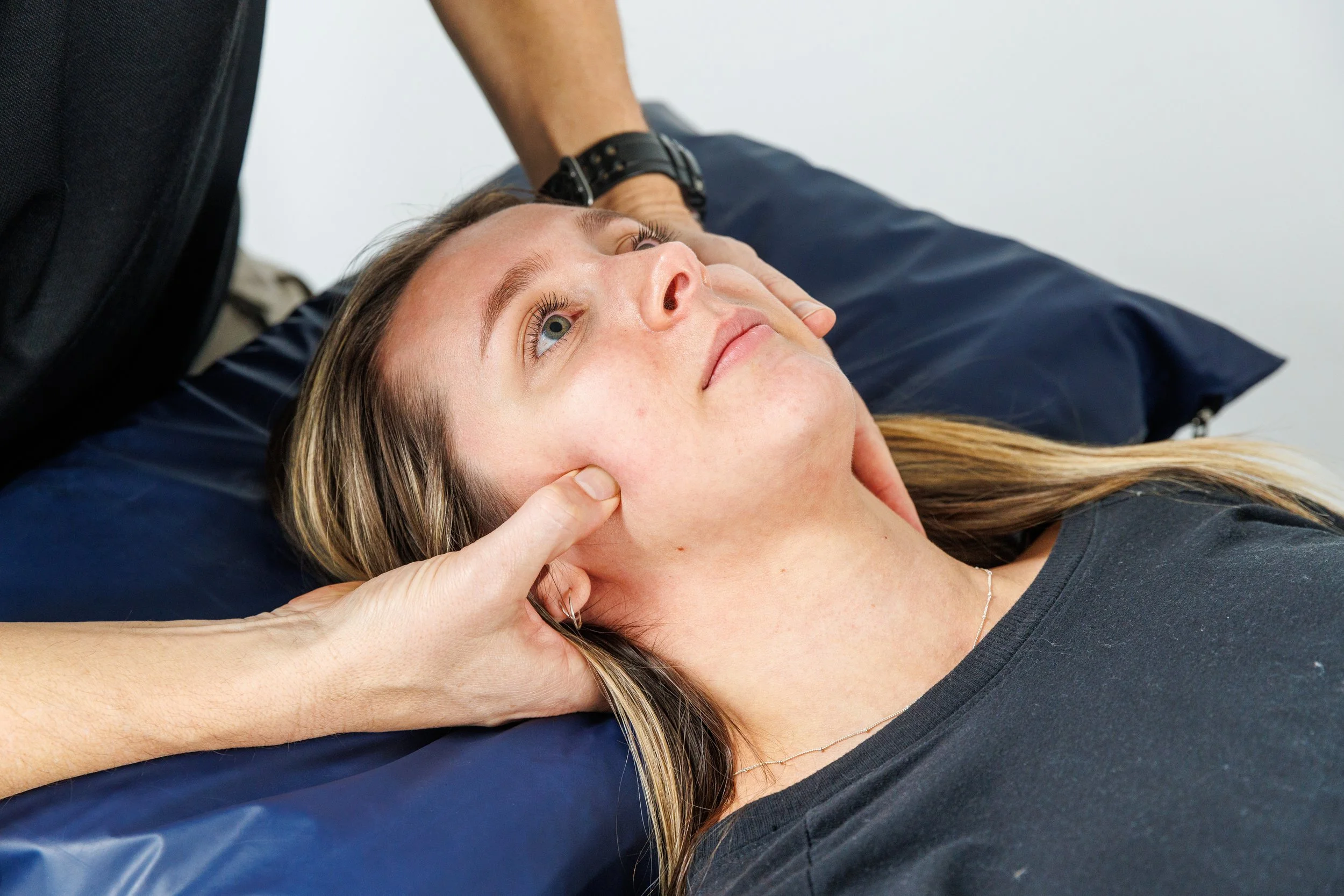Jaw Pain / TMJ Problems
The Temporomandibular Joint (TMJ) is located right in front of your ears on both sides of your head and is where your jaw bone articulates, or joins, to your skull. It is the most used joint in your body as we use it to eat, speak, chew, express emotion, yawn and even when mouth breathing. The muscles that control this joint often get tired and sore from use, stress or clenching, as well as grinding our teeth.
Do you have a Jaw Joint Problem?
You may have a jaw joint problem if you experience one or more of these:
Pain when chewing, speaking, or openening your mouth widely
Clicking, popping, or grating sounds when chewing, or opening/closing your mouth
Inability to open your mouth widely
Feelings of being “stuck” or “locked” when either opening or closing your mouth
Difficulty chewing or a sudden uncomfortable bite
Feeling tired in the face
Swelling on the side of the face
Associated symptoms like toothaches, headaches, neck aches, dizziness, earaches, hearing problems, upper shoulder pain, and ringing in the ears (tinnitis)
Causes of Jaw Problems:
There are many contributing factors to the development of these disorders including.
Asymmetrical chewing (i.e. avoiding a sore tooth)
Injuries or trauma to the jaw area
Surgical or dental work
Arthritis
Excessive stress and tension – chewing, biting, yawning, sucking, and grinding
Jaw abnormalities, missing teeth, poor bite
Postural abnormalities
Prolonged mouth breathing
Treatment:
Our physiotherapists provide a TMJ Management plan to treat these problems. This will include restoring a normal movement pattern often through stretching and strengthening around the jaw joint along with joint mobilisation techniques, muscle release and relaxation strategies. Often your physio will discuss your case with your dentist to help get best outcomes
Treating Physiotherapist
Ask the Physio
Looking for some advice or unsure whether physio is right for you? Fill out the following form to ask a question directly with one of our practitioners.

